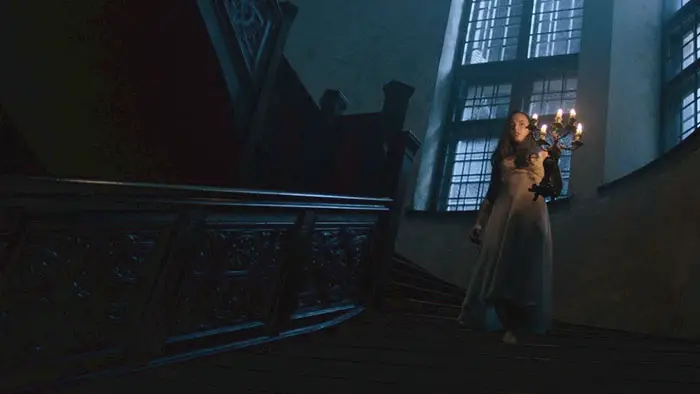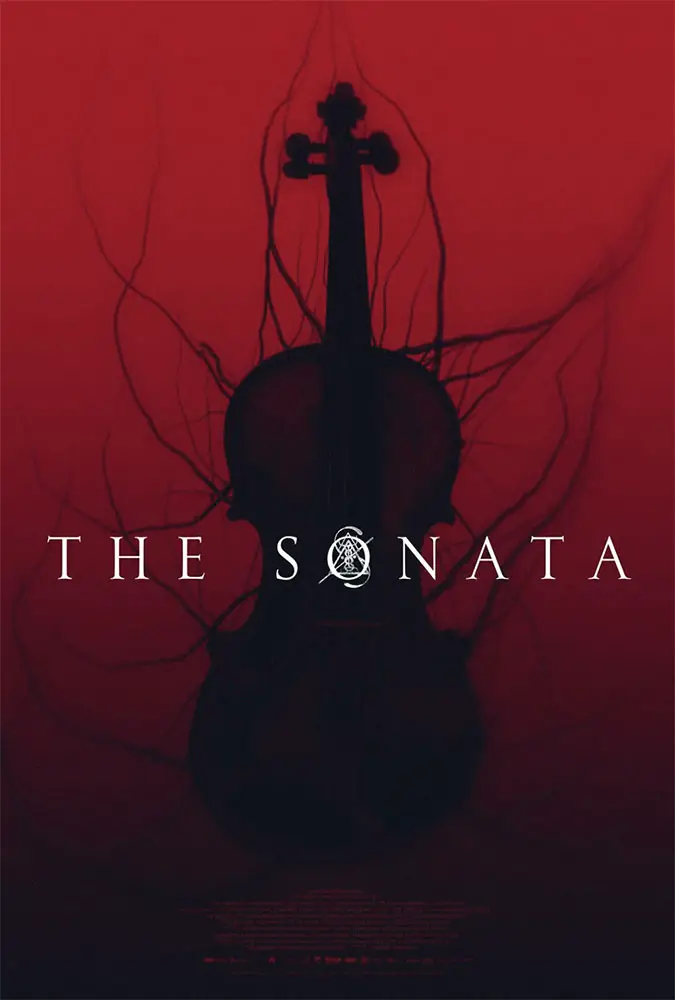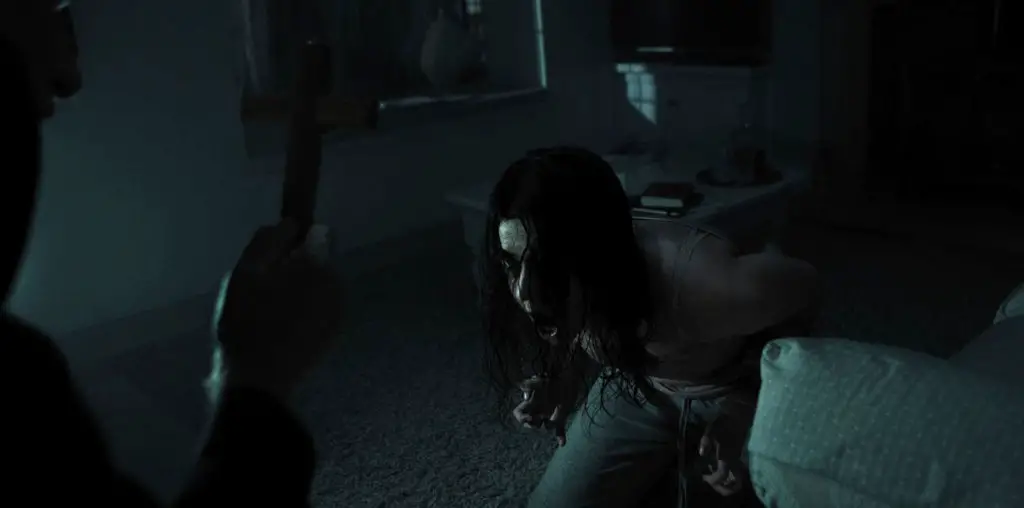
Beautifully shot by DP Janis Eglitis, and with the Latvian palace that stands in for Marlowe’s French estate providing a suitably austere and foreboding setting, The Sonata casts a hypnotic spell with its finely crafted visuals and atmosphere, as well as the solid leading performances by Tingley and Akbarian. For a while, the film’s elegant art-horror vibe is quite compelling, leaving the ancient secret societies and demonic entities that it hints at tantalizingly off-screen and just out of Rose’s grasp.
Unfortunately, though, the film begins to stumble late in its second act, its well set-up mystery devolving into a contrived sort of video-game logic that finds Rose and Charles searching the mansion and grounds for hidden clues that correspond to the symbols on Marlowe’s sheet music. It’s something of a left turn that’s sillier than it is suspenseful – sadly, more National Treasure than The Ninth Gate – and, though a revelation involving an old tape recorder is legitimately disturbing, this mostly feels like busywork rather than the satisfying escalation of horrors that the story seemed to be leading toward. Worse, when the film finally does build to the crescendo it’s been promising all along, the climactic scene is marred by some incongruous, showy visual effects that are more likely to inspire laughter than terror; it goes a long way toward proving how preferable a “less is more” approach can be when it comes to depicting the supernatural. There is a clever epilogue that much better matches the evocative, unsettling tone of The Sonata‘s early going, but by that point, whatever macabre enchantment the film has been conjuring has largely been broken.

“…the film’s elegant art-horror vibe is quite compelling, leaving the ancient secret societies and demonic entities that it hints at tantalizingly…”
Even if The Sonata ultimately turns out to be something of a letdown, however, it may still be worth seeing for Rutger Hauer’s involvement alone. He was truly a force to be reckoned with on screen, his soulful, dominant performances able to elevate even trashy genre fare like The Hitcher to near-classic status. Whether or not the filmmakers behind The Sonata realized that their film would be one of his last, it was an ingenious – and highly respectful – choice to cast him as a figure of legendary stature, to make him such a central and memorable part of the film even as little as he’s actually seen in it. In doing so, The Sonata pays tribute to Hauer’s incredible legacy as a performer, and the celebration of how great he was is both heartening and much appreciated.

"…She discovers his final sonata, annotated with arcane symbols that she's unable to decipher; that, and some brief but ominous hallucinations, set her on the path toward uncovering the dark supernatural secrets of her father's life's work."

